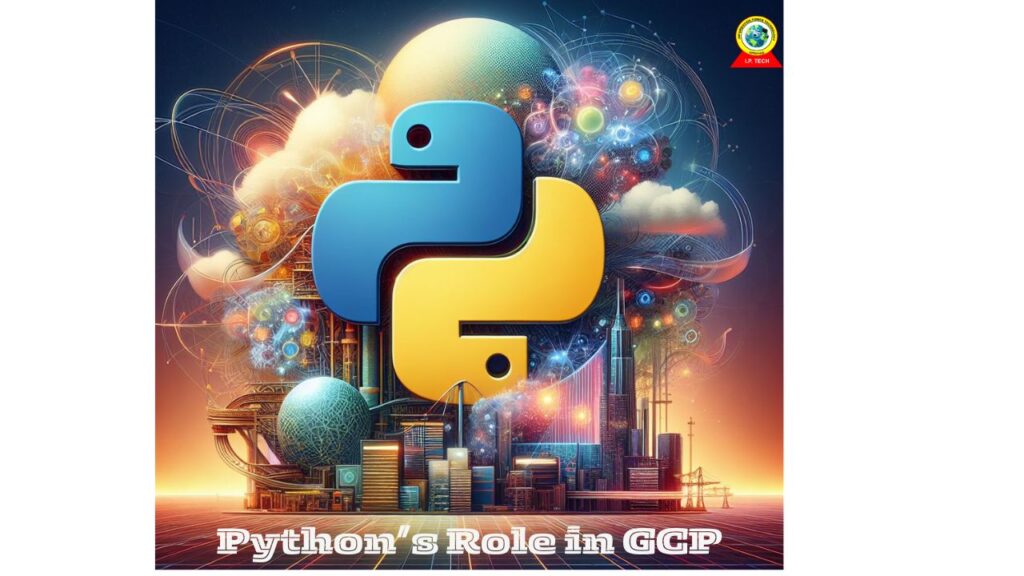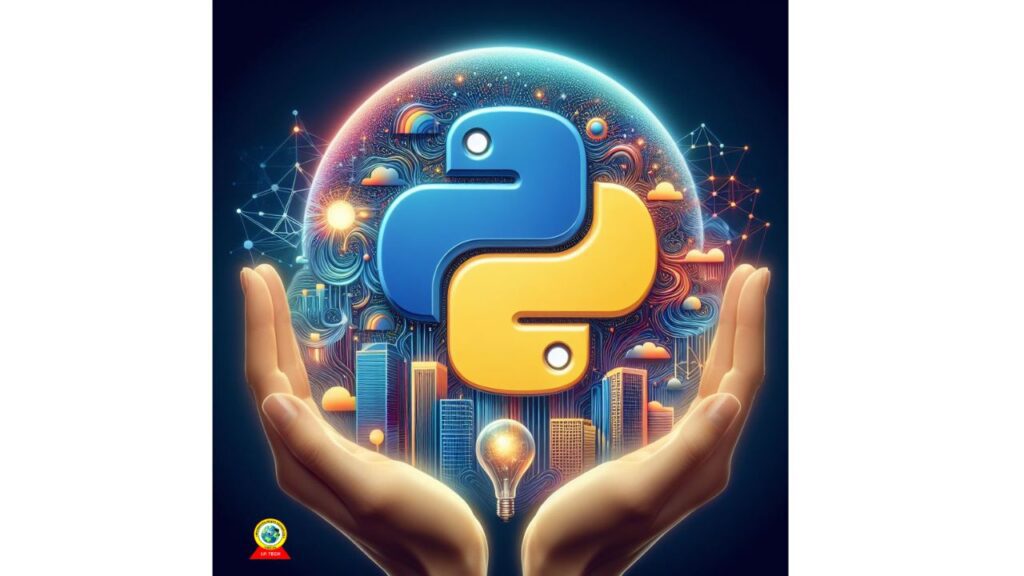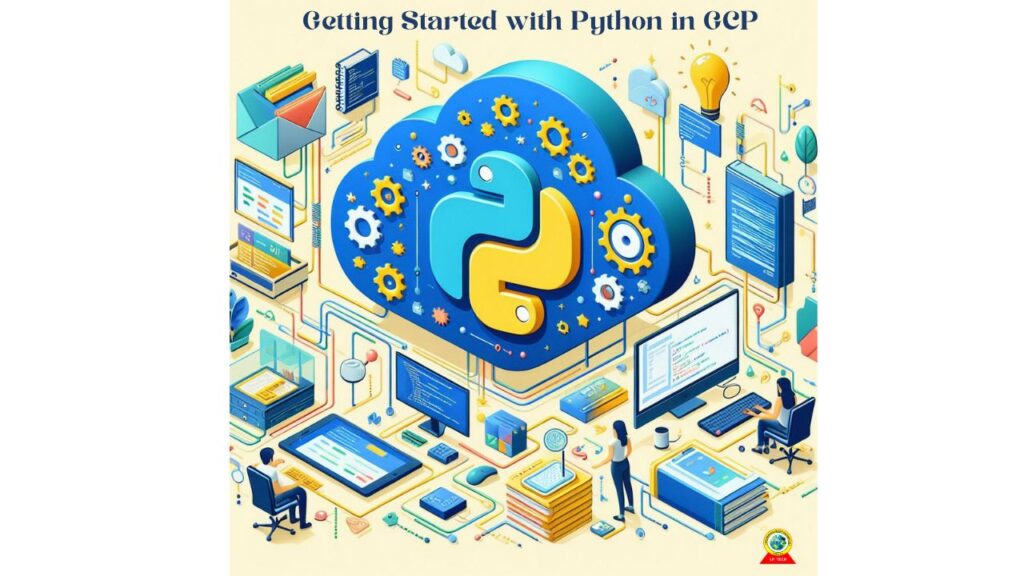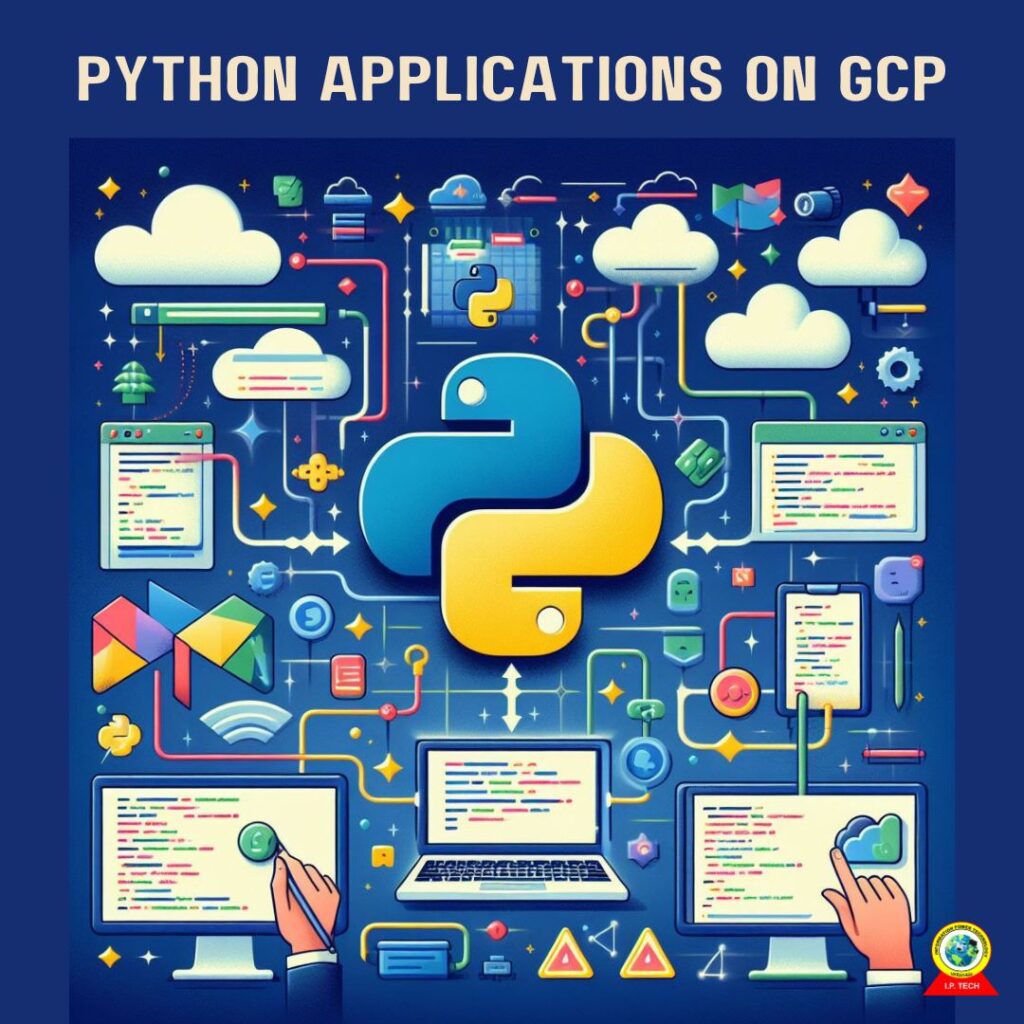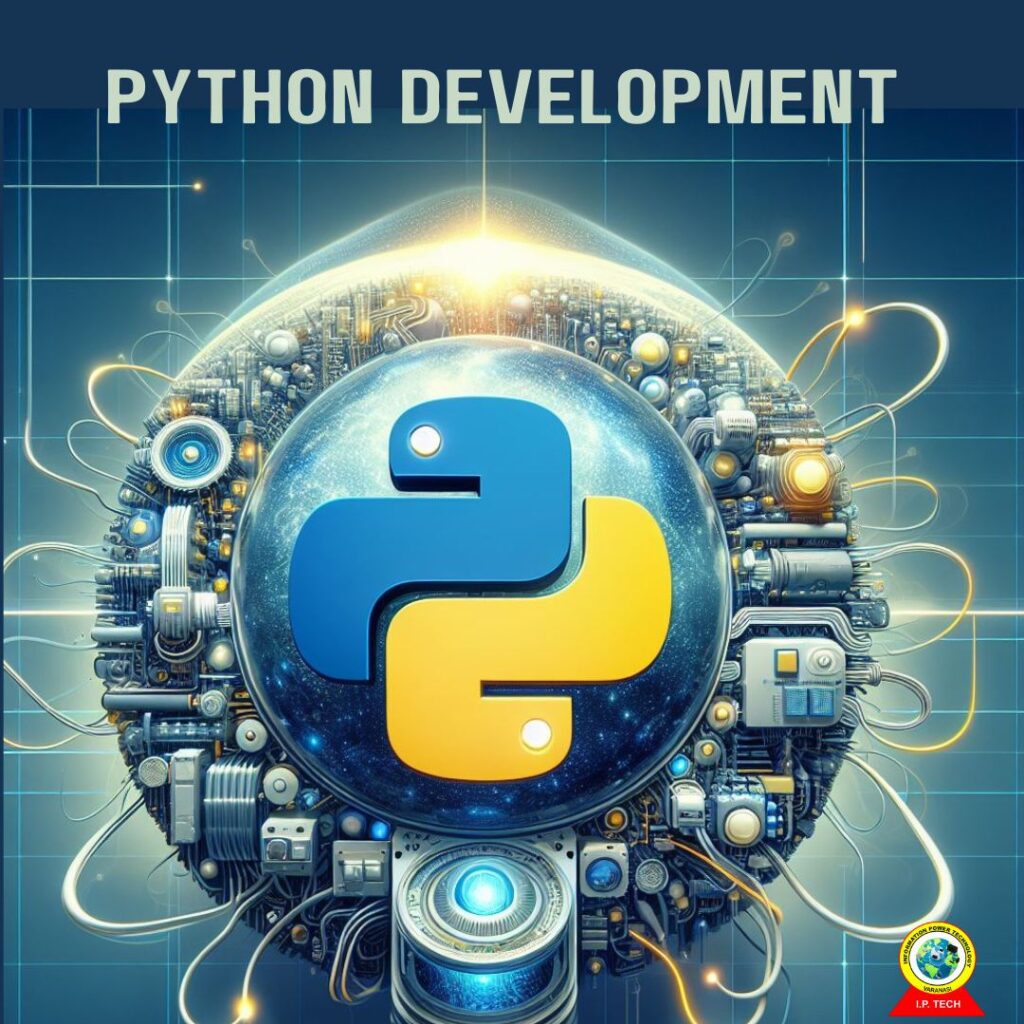Are you looking to master the cloud and leverage the power of Google Cloud Platform? Look no further than Python. With its simplicity, versatility, and extensive library ecosystem, Python is the go-to programming language for building scalable and efficient cloud applications.
In this article, we will explore Python’s indispensable role in Google Cloud Platform and how it empowers developers to unlock the full potential of cloud computing. From deploying applications to managing infrastructure and analyzing data, Python offers a seamless and productive experience. Discover how Python integrates with Google Cloud services, such as BigQuery, Cloud Storage, and App Engine, to streamline development processes and drive innovation. Whether you’re a seasoned Python developer or new to the cloud, mastering Python’s role in Google Cloud Platform is essential for staying ahead in today’s fast-paced digital landscape. Join us on this journey to harness the power of Python in the cloud and unlock endless possibilities for your next project.
1. Python’s Role in GCP
Python plays a pivotal role in Google Cloud Platform (GCP) by providing a robust and flexible programming language for developing cloud-based applications. Its simplicity and readability make it an ideal choice for both beginners and experienced developers alike. Python’s extensive library ecosystem, including popular frameworks like Flask and Django, enables developers to build scalable and efficient applications with ease.
Python’s integration with GCP services such as BigQuery, Cloud Storage, and App Engine allows developers to leverage the full potential of these services. Whether it’s processing large datasets, building data pipelines, or deploying web applications, Python provides the tools and frameworks necessary to accomplish these tasks seamlessly.
1.Pythonic Foundations for GCP Integration
Python serves as the bedrock for seamless integration within the Google Cloud Platform (GCP). Its versatile syntax and extensive libraries empower developers to build robust applications, ensuring a solid foundation for GCP projects.
2. Python’s Scalability in GCP Workloads
Unlocking the true potential of GCP, Python demonstrates unparalleled scalability. Whether handling data-intensive processes or managing complex machine learning models, Python’s efficiency shines through. Its adaptability enables developers to effortlessly scale applications and services within the GCP ecosystem.
3. Python Tools for GCP Optimization
In the realm of Google Cloud Platform, Python acts as a powerful optimization toolset. From deploying serverless functions to orchestrating cloud resources, Python scripts streamline tasks, enhancing efficiency and reducing development cycles. Embracing Python unleashes a plethora of tools that amplify the capabilities of GCP, ensuring a seamless and productive development experience.
2. Benefits of Using Python in GCP
Using Python in Google Cloud Platform offers several advantages that contribute to a seamless and productive development experience. One of the key benefits is the extensive ecosystem of libraries and frameworks available to Python developers. These libraries, such as NumPy, Pandas, and TensorFlow, provide powerful tools for data processing, analysis, and machine learning.
Python’s simplicity and readability also make it an excellent choice for collaboration and team development. Its clean syntax and structured approach promote code maintainability and readability, making it easier for developers to understand and modify each other’s code. Additionally, Python’s large and active community ensures that developers have access to a wealth of resources, tutorials, and support.
Another benefit of using Python in GCP is its compatibility with other programming languages. Python can seamlessly integrate with other languages, allowing developers to combine the strengths of different languages and frameworks to build complex and sophisticated applications. This flexibility is particularly valuable when working with legacy systems or integrating with existing software infrastructure.
1. Enhanced Scalability with Python in GCP
Leveraging Python in Google Cloud Platform (GCP) empowers developers with a seamless approach to scalability. Python’s inherent flexibility and readability make it an ideal language for crafting applications that effortlessly scale in response to varying workloads. The dynamic nature of Python enables quick adjustments and efficient resource utilization, ensuring a smooth and scalable user experience.
2. Python’s Data Prowess Unleashed in GCP
Python’s rich ecosystem of data manipulation and analysis libraries adds a distinctive advantage to GCP projects. From Pandas for data manipulation to TensorFlow for machine learning, Python provides a comprehensive toolkit for handling and processing data in various forms. Integrating Python into GCP unlocks a world of possibilities for data-centric applications, enabling businesses to derive valuable insights from their datasets.
3. Rapid Development and Deployment with Python in GCP
One of the standout benefits of employing Python in GCP is the accelerated development and deployment cycles it facilitates. Python’s concise syntax and extensive libraries allow developers to write clean and efficient code, reducing development time. Furthermore, GCP’s compatibility with popular Python frameworks, such as Flask and Django, streamlines the deployment process, enabling faster time-to-market for applications and services. The synergy between Python and GCP enhances agility, making it an optimal choice for businesses seeking rapid and efficient software development.
3. Getting Started with Python in GCP
Getting started with Python in Google Cloud Platform is a straightforward process. The first step is to set up a GCP account and create a project. Once the project is set up, developers can enable the necessary APIs and services required for their application. This includes services like Google Cloud Storage, BigQuery, and App Engine.
After setting up the project, developers can choose from various development environments for writing Python code. Google Cloud provides a web-based IDE called Cloud Shell, which comes pre-installed with Python and other essential tools. Alternatively, developers can use their preferred local development environment, such as Visual Studio Code or PyCharm, and connect to GCP using the Cloud SDK.
To deploy Python applications on GCP, developers can utilize the App Engine service. App Engine provides a platform for building, deploying, and scaling applications without worrying about infrastructure management. Python developers can use the App Engine flexible environment, which allows for custom runtime configurations and easy integration with other GCP services.
4. Key Python Libraries and Tools for GCP
Python’s extensive library ecosystem is one of its biggest strengths, and there are several key libraries and tools that Python developers can leverage in Google Cloud Platform. Here are a few notable ones:
1. NumPy
NumPy is a fundamental library for scientific computing in Python. It provides support for large, multi-dimensional arrays and matrices, along with a collection of mathematical functions to operate on these arrays efficiently. NumPy is widely used in data processing, scientific research, and machine learning applications.
2. Pandas
Pandas is a powerful library for data manipulation and analysis. It provides data structures and functions for efficiently handling structured data, such as CSV files or SQL tables. With Pandas, Python developers can easily clean, transform, and analyze data, making it an essential tool for data processing in GCP.
3. TensorFlow
TensorFlow is an open-source machine learning framework widely used in GCP for building and training deep learning models. Python developers can use TensorFlow’s high-level APIs to create complex neural networks and perform tasks such as image recognition, natural language processing, and predictive analytics.
4. Flask
Flask is a lightweight and flexible web framework for Python. It provides a simple yet powerful way to build web applications, APIs, and microservices. Flask’s modular design and extensive ecosystem of extensions make it an excellent choice for developing scalable and maintainable cloud-based applications.
These are just a few examples of the many libraries and tools available to Python developers in Google Cloud Platform. Depending on the specific requirements of your project, you may find other libraries like scikit-learn for machine learning, Matplotlib for data visualization, or Celery for distributed task processing equally valuable.
5. Deploying Python Applications on GCP
Deploying Python applications on Google Cloud Platform is a streamlined process thanks to the powerful tools and services provided by GCP. One of the primary options for deploying Python applications is using the App Engine service. App Engine allows developers to focus on writing code while GCP handles the infrastructure management.
To deploy a Python application on App Engine, developers need to define the application’s configuration in an app.yaml file. This file specifies the runtime environment, scaling settings, and other parameters necessary for the application to run correctly. Once the configuration is set, developers can use the gcloud command-line tool or the GCP Console to deploy the application to the App Engine.
1. Seamless Python Deployment on GCP: A Quick Start Guide
Effortlessly deploy Python applications on Google Cloud Platform (GCP) with our step-by-step guide. Streamline your development workflow and harness the power of Python in the cloud.
2. Pythonic Excellence in GCP Deployment Best Practices
Explore advanced techniques and best practices for deploying Python applications on GCP. From optimizing scalability to leveraging GCP’s robust infrastructure, dive into a world where Python and GCP synergize for unparalleled performance.
3. Python and GCP Integration: Mastering Microservices Architecture
Unlock the potential of microservices with Python on Google Cloud. Delve into the intricacies of building scalable, resilient, and maintainable Python-based microservices on GCP, transforming your application deployment into a seamless and efficient process.
6. Data Processing and Analysis with Python in GCP
Python’s extensive library ecosystem makes it an excellent choice for data processing and analysis in Google Cloud Platform. With libraries like NumPy and Pandas, Python developers can efficiently handle large datasets and perform complex data manipulations and calculations.
Google Cloud Platform provides services like BigQuery, Cloud Dataflow, and Dataproc that integrate seamlessly with Python for data processing and analysis. BigQuery, a fully-managed data warehouse service, allows developers to query massive datasets using SQL and export the results to Python for further analysis. Cloud Dataflow and Dataproc enable developers to build data pipelines and perform distributed data processing using Python.
1. Python-Powered Data Ingestion:
In the realm of Google Cloud Platform (GCP), Python emerges as a formidable force for efficient data processing and analysis. Leveraging its versatile capabilities, Python plays a pivotal role in the seamless ingestion of data into GCP environments. Whether it’s streaming data or batch processing, Python’s syntax and libraries simplify the complexities, offering a smooth on-ramp for diverse datasets.
2. Pythonic Data Transformation:
Once the data is securely within GCP, Python continues to be the go-to language for transformative operations. From cleaning and wrangling to feature engineering, Python’s rich ecosystem of libraries such as Pandas and NumPy empowers data scientists and engineers to sculpt raw data into insightful patterns. The language’s readability and ease of use further expedite the data transformation journey, making Python a natural ally in GCP’s data analysis toolkit.
3. Python Analytics in GCP:
Unlocking the true potential of data lies in meaningful analysis, and Python excels in this domain within the GCP framework. Through powerful libraries like TensorFlow and PyTorch, Python enables advanced machine learning models and statistical analyses. The synergy between Python and GCP’s robust analytics services ensures that organizations can derive actionable insights from their data, fostering informed decision-making and innovation. Python’s versatility positions it as a cornerstone for data processing and analysis within the expansive landscape of Google Cloud Platform.
8. Machine Learning and AI Using Python in GCP
Python’s popularity in the machine learning and artificial intelligence (AI) community makes it a natural choice for developing ML and AI applications in Google Cloud Platform. With libraries like TensorFlow, Keras, and scikit-learn, Python developers can build and train sophisticated machine learning models with ease.
Google Cloud Platform offers several services for machine learning and AI that integrate seamlessly with Python. For example, Cloud AutoML allows developers to build custom machine learning models without extensive knowledge of machine learning algorithms. Developers can use Python to preprocess and prepare the data, train the models, and make predictions using the trained models.
Additionally, Google Cloud’s AI Platform provides a fully-managed environment for developing, training, and deploying machine learning models at scale. Python developers can use AI Platform’s JupyterLab integration to experiment with different models, collaborate with team members, and deploy models to production seamlessly.
Python’s simplicity, extensive library ecosystem, and integration with GCP services make it a powerful tool for implementing machine learning and AI solutions in the cloud. Whether you’re building recommendation systems, natural language processing models, or computer vision applications, Python provides the flexibility and tools necessary to bring your ideas to life.
9.Python Development Best Practices for GCP
To make the most of Python in Google Cloud Platform, it’s essential to follow best practices for Python development. Here are a few tips to help you optimize your Python code for GCP:
1. Use Asynchronous Programming
Python’s asyncio framework allows developers to write asynchronous code, enabling better utilization of resources and improved performance. Asynchronous programming is particularly useful for handling I/O-bound tasks, such as making API requests or reading and writing to databases.
2. Leverage Serverless Computing
Serverless computing, as provided by services like Cloud Functions and Cloud Run, allows developers to focus on writing code without worrying about infrastructure management. By leveraging serverless computing, Python developers can build scalable and cost-efficient applications that automatically scale based on demand.
3. Monitor and Optimize Performance
Monitoring the performance of your Python applications in GCP is crucial for identifying bottlenecks and optimizing resource usage. GCP provides tools like Stackdriver Monitoring and Logging, which allow developers to monitor application performance, detect anomalies, and troubleshoot issues.
4. Automate Deployment and Testing
Automating the deployment and testing processes can save time and improve overall development efficiency. Tools like Cloud Build and Cloud Deployment Manager allow developers to automate the deployment of Python applications, while frameworks like pytest and unittest facilitate automated testing.
By following these best practices, Python developers can ensure that their applications in Google Cloud Platform are scalable, efficient, and maintainable.
“Seize Your Future: Enroll Now in Our Python Course!”
Unlock the power of Python with our comprehensive Python course! Dive into the world of programming and boost your skills. Visit our official site now to explore the course details and secure your spot. Ready to embark on a coding journey? Click here our on the link given below to fill out the admission form and kickstart your Python proficiency! #PythonCourse #CodingJourney
www.iptechinstitute.com/admission-form/
